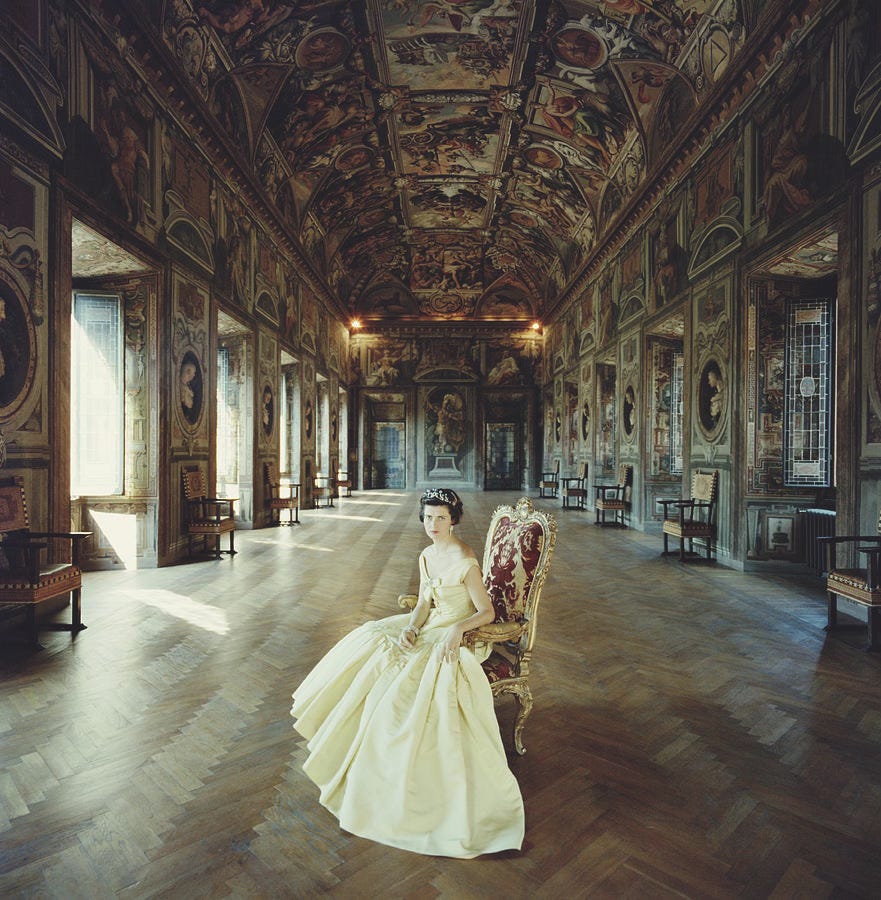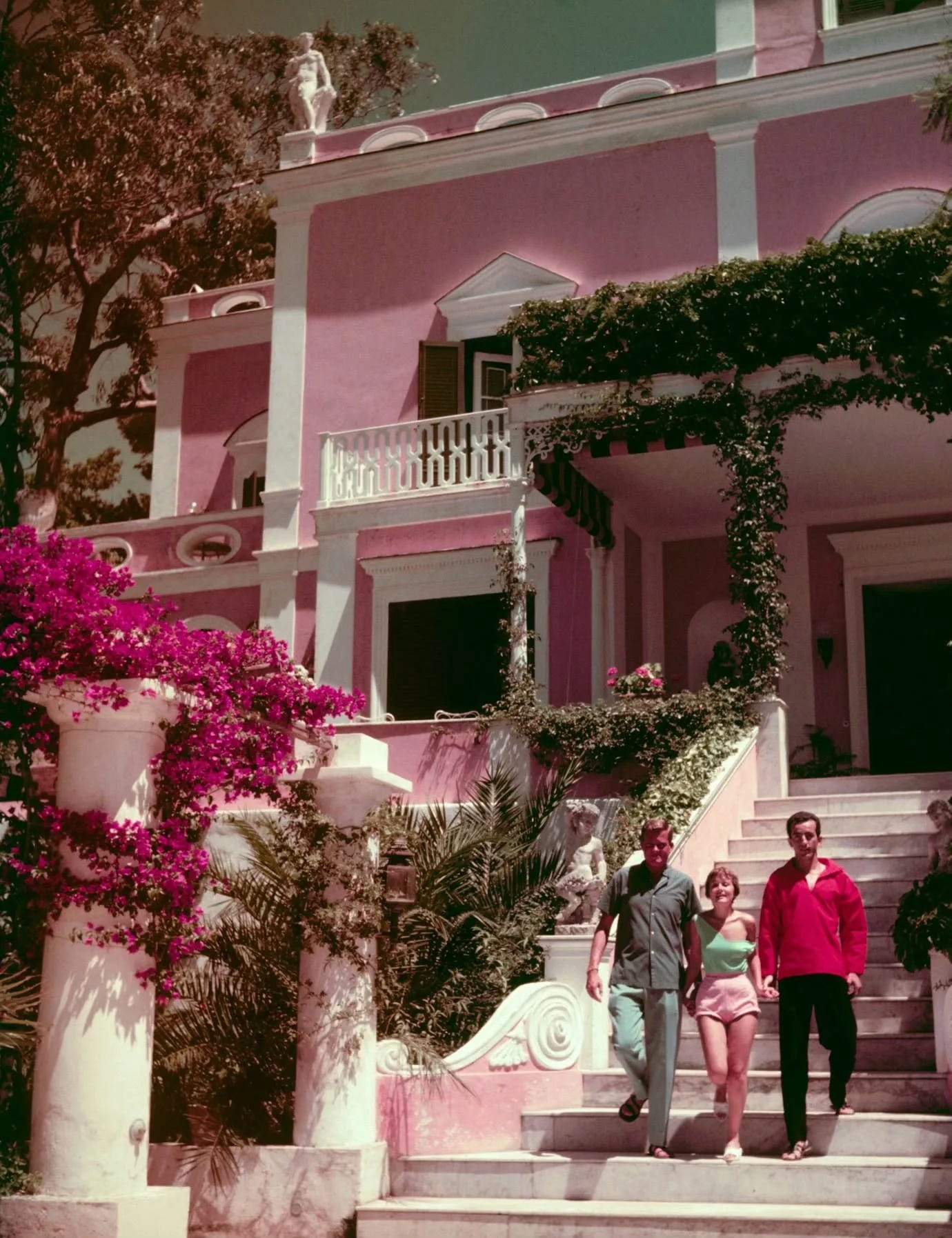
This week we discover one of Rome’s most important historical dynasties, which greatly influenced the history of Italy and was full of unmissable charachters.
If you aren’t subscribed yet, hit the subscribe button below to receive the Adorable Stories every weekend, directly in your inbox:
Origins
This noble and ancient Italian family traces its origins to Campi Bisenzio, near Florence, Italy and was already recorded around the first half of the 13th century in Florence, with appointments among the city’s magistrates.
At the end of the 14th century, Lorenzo Ruspoli moved to Rome and his descendants gradually increased their fortunes by becoming part of the Roman aristocracy with Bartolomeo Ruspoli, who purchased the marquisate of Cerveteri from the wealthy Orsini family in 1647.
Upon his death in 1681, assets, titles and surname were inherited by Francesco Maria Marescotti Ruspoli, grandson of Vittoria Ruspoli, the last of the family, who in 1652 had married the Bolognese patrician Sforza Vicino Marescotti.
Francesco Maria also obtained from his uncle Galeazzo Marescotti the titles of count of Vignanello and marquis of Riario, and annexed to the fief of Cesi, purchased from the Caetani family.
The name and family of the Ruspolis were assumed by provision of Pope Clemente XI in 1704, and Francesco Maria became prince of Cerveteri from 1709, as well as a Roman patrician.
Notable Representatives
Among the descendants we should remember Bartolomeo Ruspoli, cardinal in 1730; his nephews Orazio, prince of Parrano in 1733, and Francesco, third prince of Cerveteri, who purchased the Palazzo Ruspoli in 1776 and, with a provision from Pope Pius VI, in 1807, was appointed Maestro of the Sacred Apostolic Hospice after the Conti di Segni.
Camillo Ruspoli (1788-1864) was elected Grand of Spain and also brought some Spanish noble titles to the family, having married Luisa Godoy, daughter of Maria Teresa of Bourbon.
After some time, the branch of the princes of Poggio Suasa was also created by the King of Italy in 1895, in the person of Emanuele Ruspoli (1837-99) who participated in the second war of the Italian independence and in 1870 was part of the provisional government of the Kingdom of Italy after September 20, 1870: Emanuele Ruspoli was also elected mayor of Rome a first time from June 30, 1878 to July 19, 1880 and a second time from November 14, 1892 until his death on November 13, 1899.
His son Eugenio Ruspoli (1866-93) was an explorer and carried out geographical and anthropological research in Somalia, along the entire peninsula from the Gulf of Aden to Juba, discovering the Lake Ciamò along the way.
Eugenio Ruspoli was killed by an elephant during a “big game” hunting trip in 1893.
Eugenio’s nephew, Marescotti Carlo Ruspoli (1892-1942), was also an explorer. He explored Ethiopia, retrieved his uncle’s body in Somalia and died fighting against the British Army in Egypt in 1942, during WWII.
Last representatives
Among the last representatives of the main branch of the Ruspoli family, we should mention Don Alessandro (1869-1952), Grand Master of the Sacred Apostolic Hospice, his son Don Francesco Maria (1899-1989) and his children:
Don Alessandro, prince of Cerveteri, known as Dado, a legendary figure from the Italian “dolce vita”, was an occasional actor and strikingly handsome playboy known for his eccentric walks along Via Veneto with a parrot over his shoulder. Dado became known for his extravagant lifestyle in the 1950s and 60s. He was friends with Brigitte Bardot, Salvador Dalí, Truman Capote, Roger Vadim, Roman Polanski, Emmanuelle Arsan and many others. Dado died in Rome on January 11, 2005;
Don Sforza, Prince of Cerveteri, also known as Lillio, who was a politician and banker active in Brazil and Italy. Donna Flavia Domitilla Salviati Ruspoli (pictured above) was his first wife. Lillio died in Rome on October 25, 2022 at 95 years old.
Keep reading with a 7-day free trial
Subscribe to Adorable Times’ Newsletter to keep reading this post and get 7 days of free access to the full post archives.





